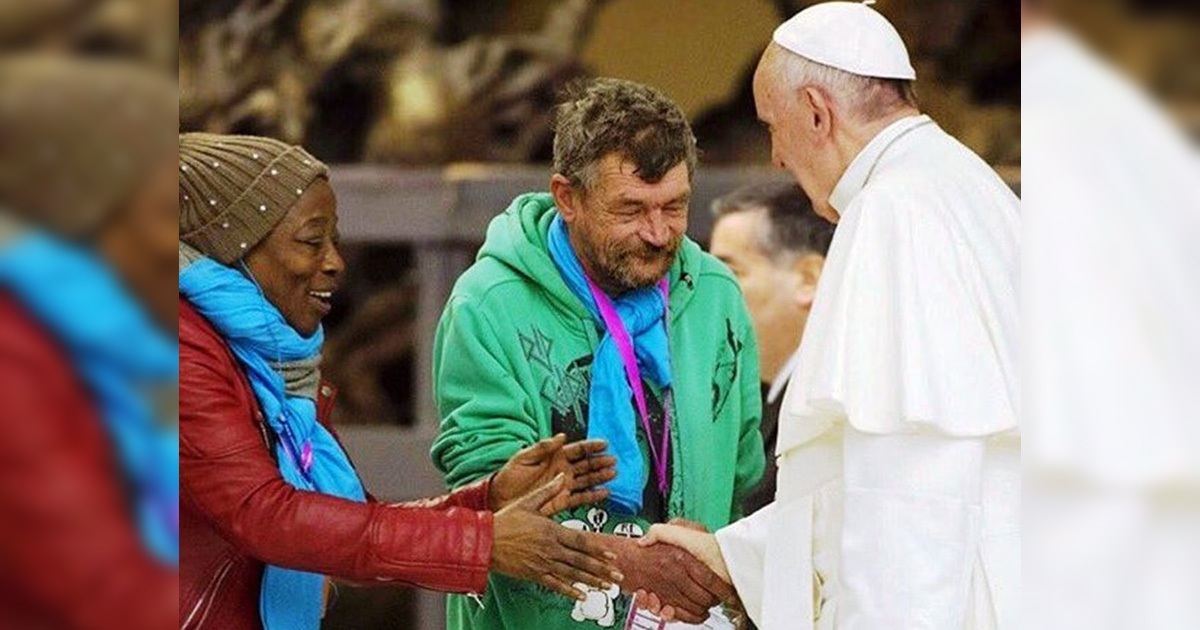“Love is patient; love is kind; love is not envious or boastful or arrogant or rude. It does not insist on its own way; it is not irritable or resentful; it does not rejoice in wrongdoing, but rejoices in the truth. It bears all things, believes all things, hopes all things, endures all things.” (1 Corinthians 13: 4-7).
The use of the word “love” has never been so overused as in the present day, mainly due to ignorance of the true meaning of love. It is worth remembering: love is the feeling of affection that makes a person want to be with another, protected, taking care of one another and being in their company. The best teaching on the concrete experience of love is described in the Parable of the Good Samaritan (Luke 10, 25-37), that highlights the unique feature of the motive to practice love for one’s neighbor, that is, compassion.
Compassion can be defined as the feeling of pity for the suffering of others, which awakens the will to help and comfort those who suffer. Compassion has another meaning: “suffering with the other” or, even better, “feeling the pain of the other.” But in any situation that involves suffering, it is essential to experience empathy, which means the ability to identify with the other, feeling what the person feels. Nothing replaces the “face to face” encounter– having the opportunity to feel for your neighbor.
So, Vincentians enjoy the divine privilege of experiencing personal contact with those who are suffering the misfortunes imposed by human existence. However, it is not enough to approach people in a state of social vulnerability; it is fundamental to love the Poor, because in this attitude the essence of the Vincentian Vocation is structured. Thus, the true testimony of those called to serve the most needy consists in unconditional love, seeking the rescue of the dignity of those who suffer.
However, as an incentive to deepen this reflection, it is appropriate to ask: do I feel love for the poor?
It is necessary to answer the previous question with extreme sincerity, because we can not deceive ourselves, since in the inevitable Final Judgment, the Lord will say: “Whatever you did for one of the least of these brothers and sisters of mine, you did for me.” (Mt 25:40). If we spent our lives loving the poor, it was Jesus Christ whom we had the grace to love. However, if we failed to love the Poor, we lost the opportunity to give our love to the Son of God Himself. And there, we already know the consequence…
Therefore, if we are among those who have not been and/or are not capable of loving the Poor, it is urgent to reverse that reality, starting with the proper fulfillment of the Word of God, which tells us: “For this very reason, make every effort to add to your faith goodness; and to goodness, knowledge; and to knowledge, self-control; and to self-control, perseverance; and to perseverance, godliness; and to godliness, mutual affection; and to mutual affection, love.” (2 Peter 1:5-7).
If we are faced with the inability to love the Poor, in order to transform this reality, practically speaking, it is essential to listen to the preaching of Pope Francis, who declared: “what really counts: to love God and our neighbor. Only this lasts forever, everything else passes away. What we invest in love remains, the rest vanishes… So let us not seek for ourselves more than we need, but rather what is good for others, and nothing of value will be lacking to us. May the Lord, who has compassion for our poverty and needs, and bestows his talents upon us, grant us the wisdom to seek what really matters, and the courage to love, not in words but in deeds.” (Homily of Pope Francis on World Day of the Poor, 11-19-2017 – 33rd Sunday of Ordinary Time).
Faced with the doctrine of the Holy Father and the Scriptures mentioned in this meditation, it is vital, in order to sustain the Vincentian life, that we assume with radical commitment the mission of loving the Poor, as Pope Francis affirmed: “Here we see true goodness and strength: not in closed fists and crossed arms, but in ready hands outstretched to the poor, to the wounded flesh of the Lord.” And the Supreme Pontiff added: “There, in the poor, we find the presence of Jesus, who, though rich, became poor (cf. 2 Cor 8:9). For this reason, in them, in their weakness, a “saving power” is present. And if in the eyes of the world they have little value, they are the ones who open to us the way to heaven; they are our “passport to paradise”. For us it is an evangelical duty to care for them, as our real riches, and to do so not only by giving them bread, but also by breaking with them the bread of God’s word, which is addressed first to them. To love the poor means to combat all forms of poverty, spiritual and material.”
Finally, it is worth noting who is the model of the testimony of love to the marginalized and the remarkable inspiration of the Vincentian Family, that is, St. Vincent de Paul, who also teaches us that: “It is good to love the Poor with special affection, seeing them as a person of Christ himself and giving them the importance that He himself gave.”
May Our Lady help us so that we never treat the Poor with indifference, disinterest or lack of love!
“Let us ask the Lord that all our Christian life be a luminous testimony of his mercy and his love.” (Pope Francis)
João Marcos Andrietta João Marcos Andrietta (58 years old), belongs to the Conference of Our Lady of the Immaculate Conception (Salto – SP) and suffers from Amyotrophic Lateral Sclerosis (ALS)
Source: http://www.ssvpbrasil.org.br/








0 Comments